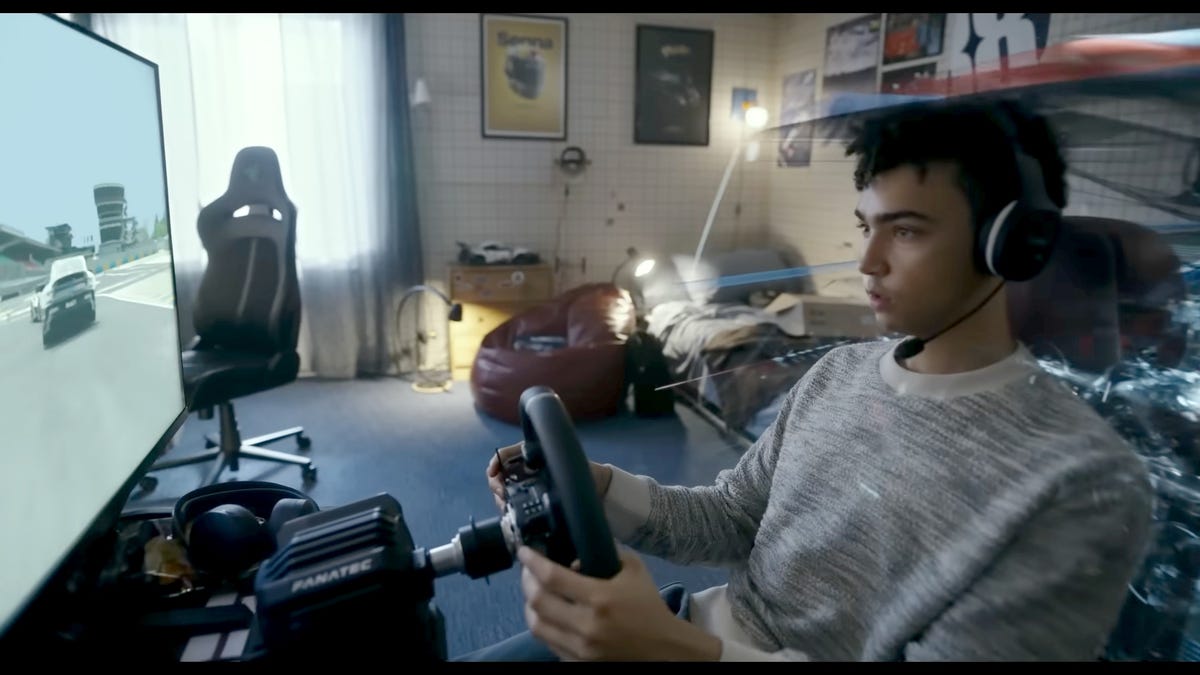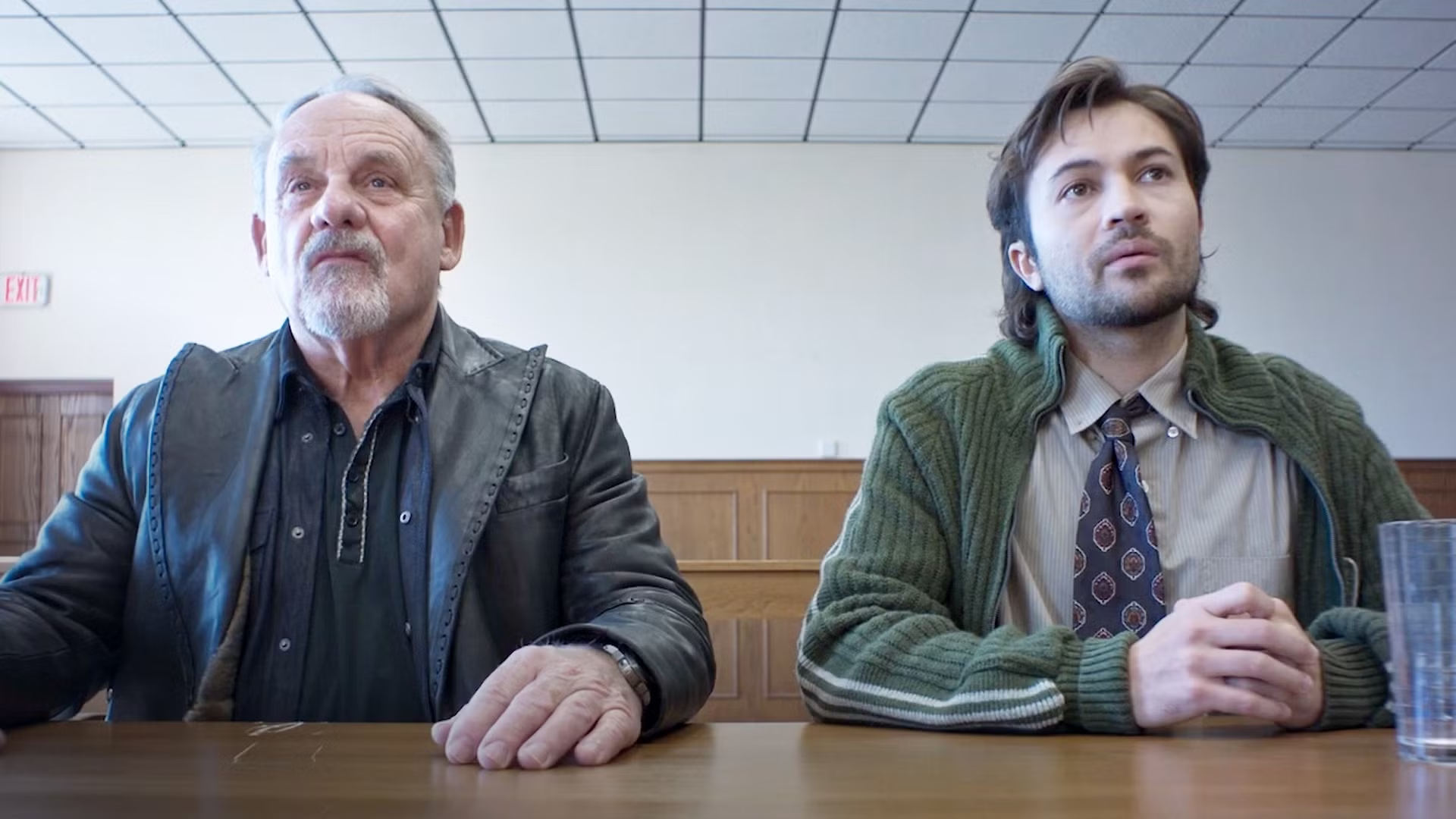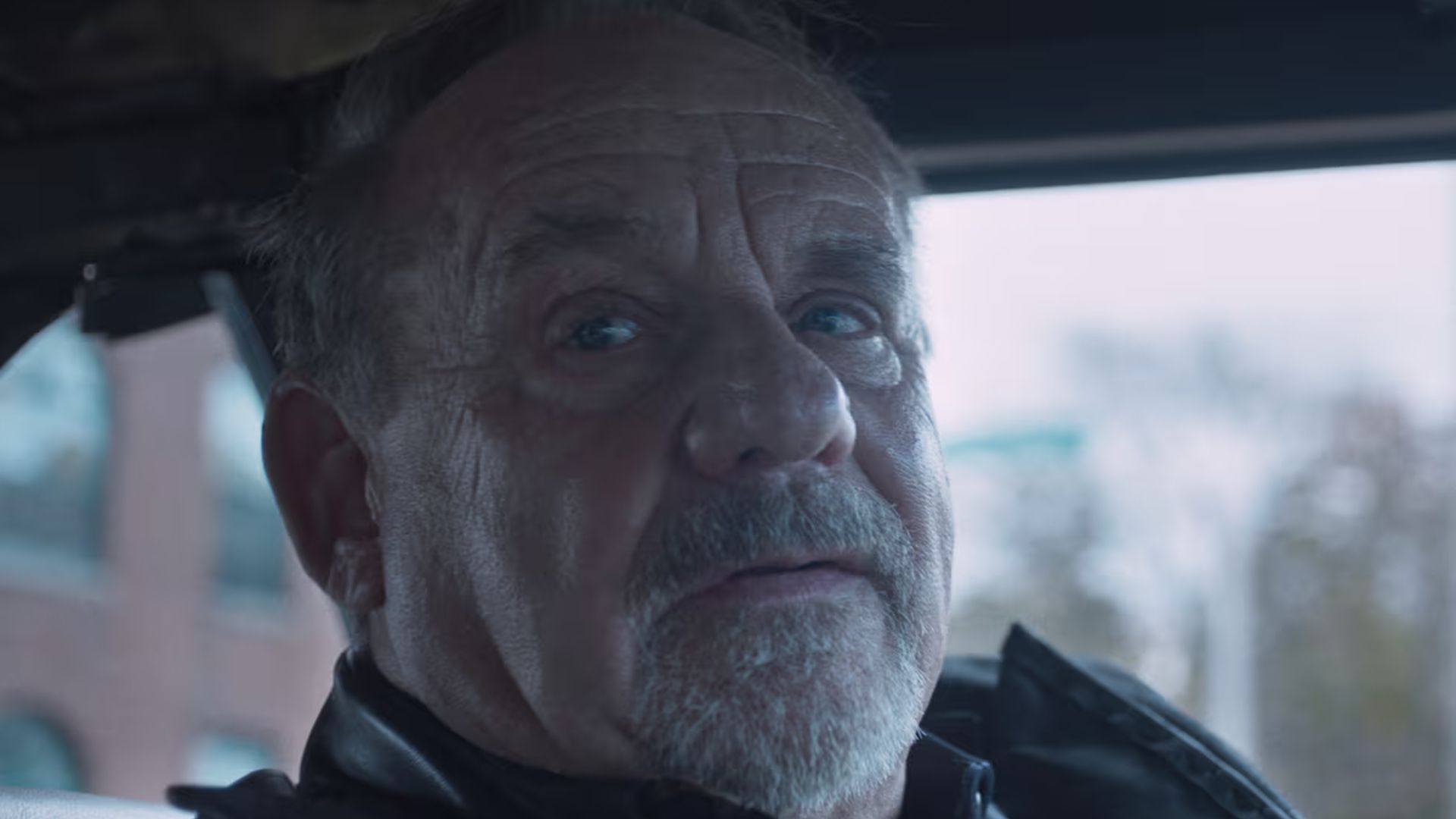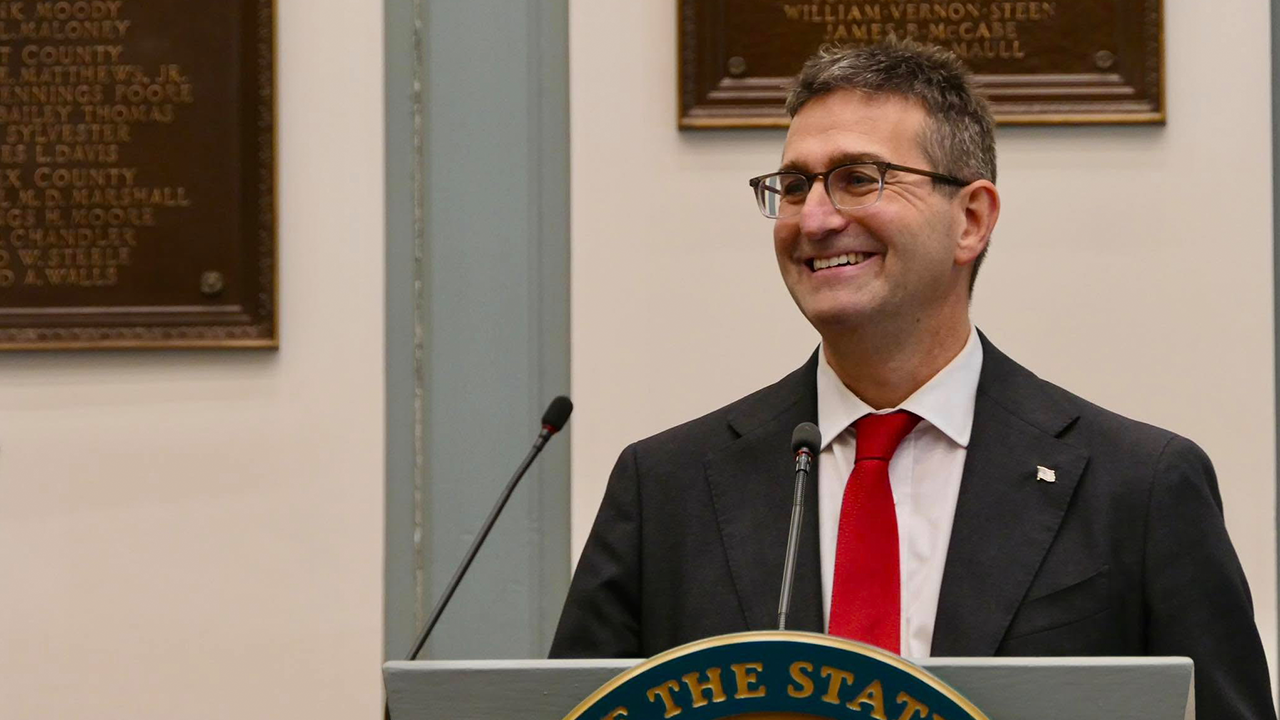Movie Reviews
Gran Turismo Movie Review Roundup: The Critics Are Split

The Gran Turismo film comes out this month, but critics don’t seem sold on the video game-inspired biopic as the Neill Blomkamp-directed film holds a 57 percent on aggregator Rotten Tomatoes at the time of this writing.
Read More: Gran Turismo Movie Slammed For Fumbling A Tragic Real-Life Death
Starring Midsommar’s Archie Madekwe, The Lord of the Rings’ Orlando Bloom, Stranger Things’ David Harbour, and Aquaman’s Djimon Hounsou, Gran Turismo is a biopic about storied racer Jann Mardenborough as he turns his passion for Sony’s racing simulator into a career on the asphalt. It’s flashily produced and slickly shot, though it was accused of mishandling a tragic death.
That isn’t where the criticism of Gran Turismo stops, although it is a contentious point for some of what reviewers have said about the film. Below is a sampling of critics’ takes on the upcoming film from Sony Pictures Releasing.
While it’s been ripe for mockery on Twitter—sorry, X—Gran Turismo does have a basis in reality. Indeed, Sony lucked out here, having an actual story to attach to a story-less IP, and an aspirational one at that. After all, what gamer doesn’t want to think their hobby isn’t training them for something real and worthwhile? Yet for all its laborious efforts to throttle past expectations, Neill Blomkamp’s Gran Turismo is too unconfident, too distracted, too rote, and simply too short on gas to earn a place on the winner’s podium.
If Polyphony Digital and PlayStation want you to walk away with one emotion, it’s hunger for the open road… if that road can be selected from the latest Gran Turismo title’s roster of tracks. Over and over again, we’re fed the same message: it’s the most accurate racing simulator, and as much as it’s a game, it’s also something more for the players capable of honing its full piston-crackling power. Sure, it may be the most expensive, ludicrous advert ever conceived—but Neill Blomkamp has achieved a bit of a miracle: a video game movie in the spirit of all the abysmal adaptations of yesteryear, but one that effectively communicates the immersion and fun of its source, and overcomes woeful writing with a rollicking, rousing big-screen experience.
Instead we get a string of bizarre flourishes, meant to elicit nods from a knowing audience. During the races, there are visual aids in the form of UI elements: dashed lines indicating the ideal routes through corners, labels above Jann’s car that tell us his position, and on a couple of occasions the camera anchors itself behind his exhaust – pitched at the exact angle that you get in the games. (It brings to mind the queasy moment in Doom, the movie from 2005, in which we see a spurt of first-person violence, aimed at drawing a smirk from the initiated.) In one scene, Jann, after sneaking out to the aforementioned party, gets pulled over and decides to elude the police using his bedroom-honed skills. When he artfully loses the tail, a congratulatory badge blazes up onscreen: “COP AVOIDANCE.” During his research for the project, Blomkamp obviously decided to refresh his palate with a few sessions of Burnout.
In another life, Jann Mardenborough might well have wound up like that bloke from Blyth who got “made in the Royal Navy”. Instead, the Cardiff gamer found a different way to achieve his potential: by parlaying his skill on the titular racing simulator into a real-life career as a professional race-car speedster. How he did it provides the compelling engine for a film that is less a plug for the PlayStation phenomenon than a motorsports Rocky for its 80-million-odd players: a rags-to-riches tale of a plucky British underdog who, like Stallone’s Philly slugger before him, got handed a shot at the title.
Special effects shots that show bodywork materialising magically around Jann as he sits at his console hint at what the film might have been had it embraced videogame graphics more decisively, à la Tron or Scott Pilgrim Vs the World. But blandness wins out: once you have seen one shot swooping and diving on to the cars as they zoom around Le Mans, you have seen them all. Ghoulishly, the film only comes alive during a crash, or some whiff of fallibility such as when Danny, based on GT Academy founder Darren Cox, tries to interfere in the selection process to favour a more media-savvy contestant.
It’s not until Jann lands behind the wheel of a racecar on an Austrian circuit that a palpable element of tension and unpredictability surfaces. Learning to drive a supercharged Nissan at speeds approaching 200 mph certainly qualifies as a major achievement, but throwing a newbie in to compete with expert drivers seems like the height of hubris. Moore manages to sell the plan with a combination of irrepressible enthusiasm and cautious strategizing, relying on Salter to support Jann with “you got this” encouragement and grudgingly tough love, which is about as close as the film gets to offering an actual antagonist.
But the big moments are all true, or true enough. The GT Academy program was indeed the brainchild of a Nissan U.K. marketing exec, who had to convince both Gran Turismo mastermind Kazunori Yamauchi and Nissan’s motorsports division of its genius. That actual exec, Darren Cox, may not have looked as slick as Orlando Bloom does in the role, but he was as persuasive a salesman. (Still is, if his producer credit alongside Mardenborough and Yamauchi is anything to go by.) Mardenborough did indeed score third place in his class at Le Mans, compete in an all-GT Academy team of sim drivers, and survive a horrific accident, as the film shows—albeit not in the order the film shows it, or under the circumstances the filmmakers contrive.
Let’s take a beat though to talk about the gaming aspect of it all. As a PlayStation production focused around one of its hallmark franchises, the first third of the movie can come across more like a Gran Turismo ad than anything else. It’s very boastful as characters constantly speak on how incredible the franchise is, and the movie even opens to both behind-the-scenes footage for the games, and our main character opening up a fresh new GT wheel. It’s also a little weird to see a movie so littered with PlayStation logos. We get it, racing is an ad-friendly sport, but it often felt like barely a second could go by without a logo, symbol, DualSense or PS5 dashboard sound showing up. At least, Sony resisted the urge to feature a lingering shot of a sparkly PS5.
Frustratingly, this is one racing movie that’s perpetually stuck in neutral.
At one point there’s a cataclysmic accident, and we see how instantly even a good racer can fall into the abyss. This results in maybe a bit too much handwringing, but it sets up a satisfying grand finale, set at the 24 Hours of Le Mans race in France. “Gran Turismo” is about racing, about healing, about fathers and sons, about facing down your competitors until that moment when you dare to thread the needle of fate.
All in all, it sounds as if the film is fine. Pretty mid, but fine. If you can overlook the massive amounts of product placement, you might even be in for a fun ride. Gran Turismo hits theaters on August 9 in the U.K. and August 25 in the U.S.

Movie Reviews
Review | It Was Just an Accident: Jafar Panahi’s dark comedy set in a future Iran

4/5 stars
In It Was Just An Accident, women in Iran can choose to appear and work in public without headscarves, and wear Western-style bridal dresses in the open. Modern bookshops do brisk business, and – perhaps most strikingly – paroled dissidents can rebuild their lives without hassle from the authorities.
In contrast to his previous films, the twice imprisoned Jafar Panahi – who is now allowed to work and travel freely after having his convictions overturned by Iranian courts – seems to have set It Was Just An Accident somewhere in an imagined, brighter future, when authoritarianism and religious dogma have receded into the distance.
As suppressed anguish takes over, however, the film turns into one dark nightmare. Could past traumas be so easily forgotten – and how should those who suffered confront or make peace with their tormentors in a land of relative freedom?
Filmed in Iran without official approval, It Was Just an Accident offers masterfully scripted, highly contemplative drama about the after-effects of political tyranny on the individual.
In between, Panahi has also laced his movie with dollops of jet-black, Beckett-like comedy, with the characters name-checking Beckett’s play Waiting for Godot in one scene.
Movie Reviews
Movie Review: ‘Any Day Now’ Keeps You Guessing | InSession Film

Director: Eric Aronson
Writer: Eric Aronson
Stars: Paul Guilfoyle, Taylor Gray, Alexandra Templer
Synopsis: To stage a masterpiece of a heist, you need time, friends, and balls. Steve has two of the three
Art thieves are complicated criminals. On the one hand, they seem to have a sense of art history and the value of the medium. On the other hand, they seem nuts because they are taking something that is catalogued and has no other like it on Earth and thus, nearly impossible to move without someone noticing. It takes a certain type of thief to be modestly successful at art theft. Which is not what you think when you meet the crew in Any Day Now.
Writer and director Eric Aronson’s script doesn’t give us much confidence that the crew of art thieves led by Marty (Paul Guilfoyle) could rob a liquor store, much less a guarded museum. At one point, a member of the crew is brought in to intimidate a drug dealer and in a confusing move with a shotgun, seemingly blows his own testicles off. It’s unclear whether it was intentional or not. Much of Aronson’s script evolves that way as we are stuck with point of view character Steve (Taylor Gray), who knows next to nothing about what is happening.
This is both a benefit and a detriment to Aronson’s script. The idea that we’re always on our back foot when it comes to Marty and his schemes is refreshing. This way of revealing things as they become necessary makes sure that the audience shouldn’t be ahead of the action in predicting the outcome of any one plot point. It’s an intriguing way to keep the audience interested.
It’s too bad the other main plot is such a dud. We have seen the lovelorn guy many times before. We’ve seen the girl of his dreams who doesn’t know how he feels and doesn’t understand her own self worth, many times before. We’ve seen the doormat guy who worries about losing his best friend since childhood even though that friend is an incredibly crappy adult. These plot points drag down the more interesting characters and plots.
Marty is a fascinating character. His charm is in his mystery, though, so he never would have worked as the focal character of this film. There is a scene that perfectly encapsulates how he is willing to save Steve from his pushover relationship with friend and roommate Danny (Armando Rivera) while also reminding Steve that he’s a pushover for Marty now. As Steve and Danny’s band play Massachusetts anthem, “Roadrunner” by Johnathan Richman and the Modern Lovers, Marty makes his way to the stage and stares down Danny until he gets the microphone from Danny. Marty then begins to croon the Boston standard, “Dirty Water” by The Standells. He gets the band into it and the crowd into it and completely takes over the space that Danny once held in the crowd’s hearts and minds. It’s a scene that evolves the two overbearing relationships in Steve’s life without forcing the issue with unnecessary dialogue.

The scene is all the more rich for Paul Guilfoyle’s bruiser charisma. Guilfoyle has been a character actor for a long time and he can give us all we need to know about a character with only a word and a gesture. His presence is felt in every scene he’s in not because he’s speaking, but because he’s thinking. Marty is always thinking and Guilfoyle makes this plain with every look he gives. It’s a masterfully subtle performance that conveys everything dangerous and enticing about Marty.
For the most part, Any Day Now is an enjoyable film. It’s not the best of heist movies, or relationship dramas for that matter, but it has characters and instances that make it intriguing to watch. It’s hard not to want to know what is going to happen when the mystery is held back so well. It’s worth tracking down for Paul Guilfoyle’s performance and for the intrigue of the heist plot.
Grade: C
Movie Reviews
‘Highest 2 Lowest’ Review: Denzel Washington and Spike Lee Reunite in Dazzling Thriller Suffused With Lush New York City Vibes

A single card credit at the end of Spike Lee’s hugely entertaining crime thriller Highest 2 Lowest reads: “Inspired by the master, Akira Kurosawa.” That tribute feels not in the least like someone paying lip service. Reinterpreting the giant of Japanese cinema’s 1963 classic, High and Low, a tense police procedural with a sharp dissection of social class structures, Lee and screenwriter Alan Fox handle the material with the utmost care and respect. At the same time, they transpose the narrative spine to an environment Lee knows intimately, allowing the director to make the film his own, with wit, high style and kinetic energy to burn.
Highest 2 Lowest is Lee’s first feature set and shot in New York since 2012’s Red Hook Summer, and that absence seems to have reignited his love for the city as a visual playground in ways that vibrate throughout.
Highest 2 Lowest
The Bottom Line
All highs, no lows.
Venue: Cannes Film Festival (Out of Competition)
Release date: Friday, Aug. 22
Cast: Denzel Washington, Jeffrey Wright, Ilfenesh Hadera, A$AP Rocky, Aubrey Joseph, Dean Winters, LaChanze, John Douglas Thompson
Director: Spike Lee
Screenwriter: Alan Fox, based on the novel King’s Ransom, by Ed McBain, and the Akira Kurosawa film High and Low
Rated R,
2 hours 14 minutes
That impression is planted instantly by the stunner of an opening — set to “Oh, What a Beautiful Mornin’” from Oklahoma! Cinematographer Matthew Libatique’s cameras glide in swoon-inducing wide shots around Manhattan and Brooklyn, kissed by pastel morning light. Conspicuously, the frame catches a large all-caps pink neon at the top of a building that reads simply, “WELCOME,” which might be a subtle nod to the pink factory smoke in Kurosawa’s otherwise B&W original.
The mobile camera eventually settles on a luxury apartment block in Dumbo, panning up to find Denzel Washington, as music industry mogul David King, talking business on his cell on the penthouse balcony. Right away we can see he’s a man bristling with confidence, beaming from ear to ear about what he believes is a sure-thing deal set to go through.
This is Washington’s fifth movie with Lee, and they clearly have a shorthand that helps them dance to each other’s rhythms. The collaboration this new movie most recalls is another foray into genre filmmaking, the 2006 heist caper Inside Man, less for the crime elements than the precision-tooled plot engine, snappy pacing and crackling energy.
The talented Libatique also shot that film, but his work here is next-level; it’s a great-looking movie with a sumptuous visual sheen that looks the way good cashmere feels. Lee shakes up the compositions with playful flourishes like wipes using the logo of David’s record company, split screen with a row of guns as the dividing line, and a stylized insert conceived like a music video and performed by a singer behind bars in an orange jumpsuit, magically flanked by twerking backup dancers.
When David’s elegant wife Pam (Ilfenesh Hadera) asks him for their usual fat-check donation to a city museum whose board she sits on, he tells her to hold off and rein in expenses for a while. This is not something she’s used to hearing.
Their teenage son Trey (Aubrey Joseph), however, is used to hearing disappointments and broken promises from his dad. David hasn’t gotten around to listening to a demo for a female artist that aspiring music manager Trey hopes he will sign, and he offers a pat apology when he rushes off to a business meeting rather than staying to watch Trey and his best friend Kyle (Elijah Wright) at basketball practice. (In one of several winks at fellow basketball junkies, Lee casts former Boston Celtics and L.A. Lakers player Rick Fox as one of the team’s coaches).
The meeting that pulls David away is an audacious plan to up his shares to a majority stake in Stackin’ Hits and take back control of the company he spent 25 years building up to chart domination, peaking in the early 2000s. Needing to psych himself up, he tells his driver, Paul (Jeffrey Wright, Kyle’s father onscreen and off), “I need a theme!” Paul obliges by blasting the evergreen McFadden & Whitehead disco hit “Ain’t No Stoppin’ Us Now” on the car stereo.
Wearing a sharp suit and killer shades, he strides into the company’s office building as if he already owns everything. But he meets opposition when veteran board member Patrick (Michael Potts) informs him they have decided it’s time to sell to a larger music biz outfit that has been circling for a while. He later reveals to Pam, who’s skeptical, that he’s mortgaged the penthouse and their house in Sag Harbor to take out a hefty loan and wants to pursue the deal, despite the wishes of the uncooperative board.
But when a call comes, revealing that Trey has been kidnapped, the company takeover bid gets nudged aside by the family crisis. A team of detectives — led by Earl Bridges (John Douglas Thompson), Bell (LaChanze) and Higgins (Dean Winters), the latter a smug white dude who immediately causes friction with David — sets up operations in their dining room to trace calls. The kidnapper demands a $17.5 million ransom, otherwise threatening to kill Trey.
Pam says of course they’ll pay and David agrees. But when Trey is found and it emerges that the kidnapper got the boys mixed up and took Kyle instead but has not changed his terms, David hesitates, $17.5 million being a lot to pay for someone else’s kid — even his godson, the child of his right-hand man. Far more than halting David’s business plans, that amount of money would wipe them out.
Among the most significant changes is the reconception of the driver character. In Kurosawa’s version, the chauffeur was an exceedingly meek man who got down on the floor to beg his stern shoe-manufacturer boss, played by the great Toshiro Mifune, to save his son. Paul is pugnacious, especially with the detectives when his criminal past prompts them to question him as a subject. He’s also not one to bow and scrape with David, even though he’s indebted to him for giving him a job and a fresh start.
One of the key themes of Fox’s screenplay is attention as currency. This plays out on social media with an outpouring of love for beloved industry figure David when his son appears to be in danger, but shifts abruptly when the full story emerges, generating unfounded headlines like “Nepo Kid Trey Set Up Friend for Kidnapping.”
David does eventually agree to pay, based on the assumption that the cops will catch the criminal and retrieve the money. A dolly zoom underscores what a sobering risk this is for David, especially with the suits at Stackin’ moving to strongarm him out of the company and even threatening legal action.
The second part of the movie kicks into high gear with an exhilarating train set-piece that might represent some of Lee’s most technically astounding direction. The kidnapper demands that David handle the cash drop-off himself on a Manhattan-bound 4 train, with further details to be communicated on his cell.
Lee makes the action more propulsive by staging it against the backdrop of Puerto Rican Day celebrations, with hundreds dancing to a live performance by Latin music great Eddie Palmieri and his orchestra, blocking access to a strategic subway stop. The situation on the train is equally chaotic after a noisy mob of baseball fans get on at Yankee Stadium.
The exchange doesn’t quite go as planned, and the kidnapper and his crew are way more organized and forward-planning than the detectives anticipated, repeatedly throwing them off the trail with decoys and swaps between motorcyclists all clad in the same head-to-toe black. It’s a tremendously exciting sequence, expertly sustained.
The kidnapper honors his promise to release Kyle, who turns up dazed but otherwise unharmed in a Bronx skate park after being bound and gagged somewhere in a basement bathtub for days. He’s unable to help much with clues, but he is able to hum a few notes of a rap tune that was thumping through the walls on repeat.
This proves invaluable to David, with his famous ear for music, but when he traces the singer through a shady contact of Paul, the cops are dismissive of his findings, Higgins more than anyone. David and Paul decide to track down the singer — one of countless struggling artists denied a foot in the door at Stackin’ — on their own, without waiting for law enforcement to catch up.
Of course, the movie swivels onto familiar Hollywood ground when Washington’s character becomes almost an action hero, despite prickly edges and an unsympathetic demeanor that make him almost an antihero. But damned if it doesn’t make for gripping fun, ushering in an amusing turn from Isis “Ice Spice” Gaston and a blindingly charismatic one from A$AP Rocky, playing characters best not discussed, for spoiler reasons.
One scene sure to be an audience favorite has David and his antagonist facing off on either side of the glass wall in a recording studio, sparking a hilarious impromptu rap battle of sorts. The dynamic is echoed soon in a prison visit, in which Lee narrows the height of the frame to squeeze the characters’ tense interaction.
The film is packed with great music, starting with Howard Drossin’s mood-shifting score, which ranges from melancholy piano to cascades of jazz, and two electrifying performances that add a massive charge. One of those is the title song, a big-build power anthem belted to the heavens by singer Aiyana-Lee. And the cast is top-to-toe excellent, with special honors to Washington, Jeffrey Wright and A$AP Rocky, who follows his work in If I Had Legs I’d Kick You with further proof of a megawatt scree presence.
Lee’s adaptation doesn’t match the complexities of class and hierarchy and even dynamics in a marriage that are such a fascinating part of the Kurosawa. Then again, he’s not trying to, and this is a universe away from the disappointment of Oldboy, his 2013 remake of the Park Chan-wook thriller. The director is in the role of the flashy, panache-y showman here, and he plays it to perfection, delivering a big, highly polished chunk of movie that’s pure enjoyment.
-

 Technology1 week ago
Technology1 week agoMexico is suing Google over how it’s labeling the Gulf of Mexico
-

 Politics1 week ago
Politics1 week agoDHS says Massachusetts city council member 'incited chaos' as ICE arrested 'violent criminal alien'
-

 Education1 week ago
Education1 week agoA Professor’s Final Gift to Her Students: Her Life Savings
-

 Education1 week ago
Education1 week agoVideo: Tufts Student Speaks Publicly After Release From Immigration Detention
-

 Politics1 week ago
Politics1 week agoPresident Trump takes on 'Big Pharma' by signing executive order to lower drug prices
-

 Culture1 week ago
Culture1 week agoTest Yourself on Memorable Lines From Popular Novels
-

 News1 week ago
News1 week agoAs Harvard Battles Trump, Its President Will Take a 25% Pay Cut
-

 News1 week ago
News1 week agoWhy Trump Suddenly Declared Victory Over the Houthi Militia



















